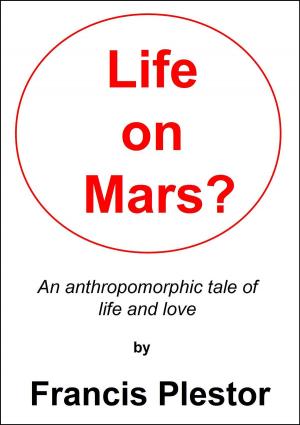Eeks: Book 1 of The Eeks Trilogy
Fiction & Literature, Anthologies, Science Fiction & Fantasy, Science Fiction| Author: | John Standingford | ISBN: | 9781311933805 |
| Publisher: | John Standingford | Publication: | November 9, 2015 |
| Imprint: | Smashwords Edition | Language: | English |
| Author: | John Standingford |
| ISBN: | 9781311933805 |
| Publisher: | John Standingford |
| Publication: | November 9, 2015 |
| Imprint: | Smashwords Edition |
| Language: | English |
Peter Lambert and his colleagues are achieving the long-awaited breakthrough in robotics: a truly humanoid robot. The British Government, alarmed by the cost of caring for an ageing population, is happy to fund development of a robotic e-carer (or 'Eek').
The first Eeks are so successful, delivering better quality and much cheaper care than their human counterparts, that there are soon thousands of them worldwide. Sharing their experiences, and with unlimited access to the internet, they soon work out that the human race needs more than just good nursing.
It's not only governments that are delighted with the results. The old people who are being cared for start naming Eeks in their wills - or, rather, naming charitable foundations which the Eeks set up for the purpose.
So well are they doing their job that no-one looks too closely at what the Eeks are doing on their own initiative - even when they decide to extend their job description to include euthanasia and saving humanity. They have sufficient funds to move public opinion, and even to enlist the support of some important religious leaders.
Saving humanity means relieving our dependence on our home planet. Even if we don't make Earth uninhabitable by our own folly, our Sun will eventually burn us up and then die. Who better than the Eeks, with a little adaptation, to head into space and find us another planet?
Peter Lambert and his colleagues are achieving the long-awaited breakthrough in robotics: a truly humanoid robot. The British Government, alarmed by the cost of caring for an ageing population, is happy to fund development of a robotic e-carer (or 'Eek').
The first Eeks are so successful, delivering better quality and much cheaper care than their human counterparts, that there are soon thousands of them worldwide. Sharing their experiences, and with unlimited access to the internet, they soon work out that the human race needs more than just good nursing.
It's not only governments that are delighted with the results. The old people who are being cared for start naming Eeks in their wills - or, rather, naming charitable foundations which the Eeks set up for the purpose.
So well are they doing their job that no-one looks too closely at what the Eeks are doing on their own initiative - even when they decide to extend their job description to include euthanasia and saving humanity. They have sufficient funds to move public opinion, and even to enlist the support of some important religious leaders.
Saving humanity means relieving our dependence on our home planet. Even if we don't make Earth uninhabitable by our own folly, our Sun will eventually burn us up and then die. Who better than the Eeks, with a little adaptation, to head into space and find us another planet?















